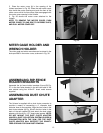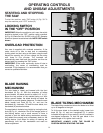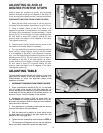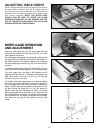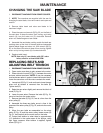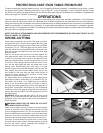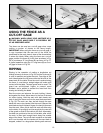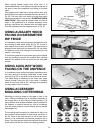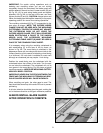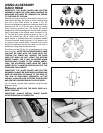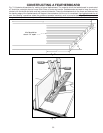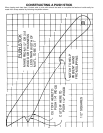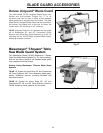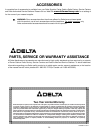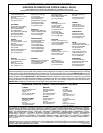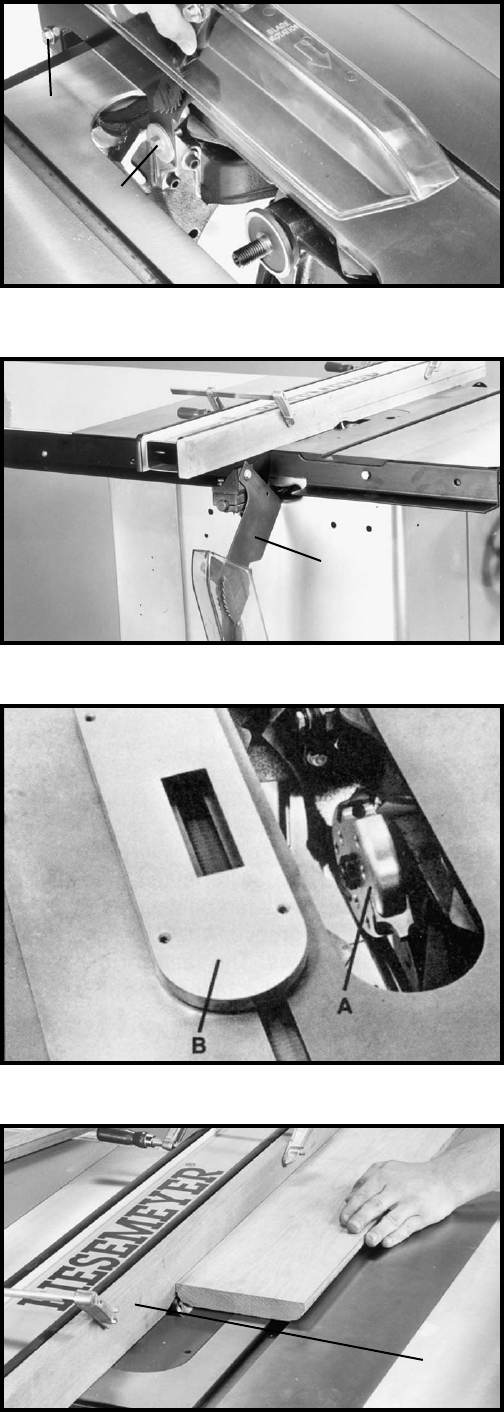
21
Fig. 65
Fig. 66
G
H
W
IMPORTANT: For certain cutting operations such as
dadoing and moulding where you are not cutting
completely through the workpiece, the blade guard and
splitter assembly cannot be used. Loosen screws (G) and
(H) Fig. 65. Lift up and swing blade guard and splitter
assembly (W) Fig. 66, to the rear of the saw, and then
tighten screws (G) and (H). CAUTION: Always return and
fasten the blade guard and splitter assembly to its proper
operating position for normal thru-sawing operations.
The moulding cutterhead (A) Fig. 67, is assembled to the
saw arbor as shown. NOTE: THE OUTSIDE ARBOR
FLANGE CAN NOT BE USED WITH THE MOULDING
CUTTERHEAD, TIGHTEN THE ARBOR NUT AGAINST
THE CUTTERHEAD BODY. DO NOT LOOSE THE
OUTSIDE ARBOR FLANGE, FOR IT WILL BE NEEDED
WHEN REATTACHING A BLADE TO THE UNISAW
ARBOR. ALSO, THE ACCESSORY MOULDING
CUTTERHEAD TABLE INSERT (B), MUST BE USED IN
PLACE OF THE STANDARD TABLE INSERT.
It is necessary when using the moulding cutterhead to
add wood-facing (C) to the face of the rip fence, as
shown in Fig. 68. The wood-facing is attached to the
biesemeyer fence with two clamps, as shown (refer to the
Unifence section of this manual for attaching wood facing
to a Unifence). 3/4 inch stock is suitable for most work
although an occasional job may require 1 inch facing.
Position the wood-facing over the cutterhead with the
cutterhead below the surface of the table. Turn the saw
on and raise the cutterhead. The cutterhead will cut its
own groove in the wood-facing. Fig. 68, shows a typical
moulding operation. NEVER USE MOULDING CUTTER-
HEAD IN A BEVEL POSITION.
IMPORTANT: NEVER RUN THE STOCK BETWEEN THE
FENCE AND THE MOULDING CUTTERHEAD AS IRRE-
GULAR SHAPED WOOD WILL CAUSE KICKBACK.
When moulding end grain, the miter gage is used. The
feed should be slowed up at the end of the cut to prevent
splintering.
In all cuts, attention should be given the grain, making the
cut in the same direction as the grain whenever possible.
ALWAYS INSTALL BLADE GUARD
AFTER OPERATION IS COMPETE.
Fig. 67
Fig. 68
C



